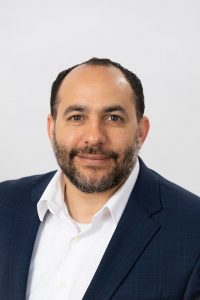Education Opens Second Chances For Scholar With Rough Upbringing

Christian Bolden, Ph.D., ’10, is living proof that second chances exist.
“If there should be one takeaway from my story it’s that people can change and they can do better if people don’t give up on them,” he said.
Today Bolden is a distinguished associate professor of criminology and justice at Loyola University in New Orleans. The path to his current post spans childhood poverty, gang violence and incarceration and, ultimately, hope and determination against the odds. It’s detailed in a 2020 book titled “Out of the Red: My Life of Gangs, Prison and Redemption,” which recently received the Frank Tannenbaum Outstanding Book Award from the American Society of Criminology.
Bolden grew up surrounded by gangs in a San Antonio, Texas, community and quickly fell into that culture.
“The kids like myself who were not functioning well in legitimate avenues had this readily available subculture to find meaning in,” Bolden said. “There were a lot of things that contributed to my involvement in gangs, including being pushed out of education through the school-to-prison pipeline and having an absentee father who made the choice to stay out in bars instead of coming home to his family at night.”
The time spent in prison is what Bolden points to as the event that changed his life. During his sentence in Texas, a grant came through for young inmates that allowed those with satisfactory disciplinary records a chance to go to college. The program introduced Bolden to a topic that would become his academic and personal passion: sociology.
“For the first time in my life I was learning about a subject that defined exactly what and why I had gone through the things I was going through,” said Bolden. “I fell in love with sociology for that reason. It explained everything for me.”
Bolden earned his associates degree prior to his release, but it was only a stepping stone, not a free pass.
“I didn’t know anything but gangs and prison at the time, so it wasn’t an easy transition,” said Bolden. “Nobody wanted to give me a job. I couldn’t even secure one at a fast-food restaurant.”
Texas State University eventually accepted Bolden after his persistent efforts and gave him the outlet he had always been looking for to tell his story and to help others. The chair of the Sociology Department encouraged Bolden to pursue his Ph.D. after excelling in their program, which is how Bolden landed at UCF.
One of the highlights of his time in Orlando was meeting renowned authors and sociologists at talks hosted for students. Bolden recalls meeting criminologist Jody Miller, Ph.D, during a UCF-affiliated event that inspired a later research collaboration.
“I remember approaching and conversing with Dr. Miller after one of these talks,” said Bolden. “Afterwards she chose me to be a part of the Eurogang Young Scholars program to support my research.”
Like Miller, Bolden also studies sociology that focuses on discrimination and incarceration in urban communities. This meeting further inspired him to pursue his studies on an even deeper level.
“For my dissertation, I decided I’d be interviewing members of gangs,” said Bolden. “This made me realize quite a bit. As a society, we go through these motions of simply throwing people away because of mistakes they made due to circumstance…just giving up on them. In reality, with the right support and direction, people can learn to apply themselves and earn a proper second chance.”
Writing his book gave Bolden the chance to not only help others, but to soothe a part of himself that he once struggled to understand.
“When I began studying sociology it was mind blowing,” said Bolden. “I finally understood that many of the adversities I faced in life were not results of me being a ‘defective’ individual but rather a result of decisions influenced by much larger social forces and contextual circumstance.”
Bolden graduated with his Ph.D in 2010 before joining Loyala University faculty in their Department of Criminology and Justice. His book has afforded him the accolade of the 2020-2021 Loyola Faculty Senate Award for Research.
“I love higher education,” said Bolden. “It was a passion for me the moment I became involved. I used to have the feeling that I was an outsider, that I didn’t belong. Sometimes still I don’t feel that I’m a part of mainstream academia and that I may be judged for my past. However receiving the accolades and awards for my book helps mitigate these feelings.”
